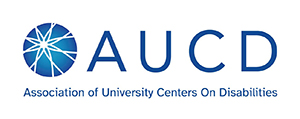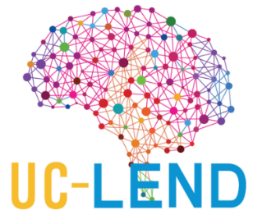Medical and Dental Curricula on IDD: Training Inclusive Providers
Past research has shown that many medical and dental students do not learn about IDD in school. The WITH Foundation, AUCD, and UC-LEND, led by Dr. Kashia Rosenau, collaborated to learn more about how medical and dental schools are teaching students about intellectual and developmental disabilities (IDD). The study found that most of the schools had self-advocates to help them teach their medical and dental students about caring for patients with IDD. The study also found that medical and dental students want to learn more about caring for their patients with disabilities. Overall, the study highlights the importance of teaching medical and dental students about caring for patients with IDD and including more self-advocates in this training.
Purpose
Surveys of medical trainees across various institutions have found that while students agree on the importance of understanding clinical care of people with disabilities, the majority of medical students do not feel competent treating these populations. The purpose of this study was to better characterize efforts in a sample of U.S. medical and dental schools to include material about intellectual and developmental disabilities (IDDs) in their curricula.
Method
This was a mixed-methods study consisting of a 36-item, electronically-delivered survey (N=38) of medical and dental school faculty and administrators who were involved with inclusive IDD curricula design and implementation. This was followed by two focus groups (N=13) with people with lived experience (PWLE) who had been involved in medical or dental school curriculum design, implementation, and/or evaluation.
Results
While PWLE were commonly involved in curriculum delivery, goal-setting and evaluation were two phases where PWLE were included the least. All schools provided basic knowledge and context about IDD, while few included the social model of disability, reproductive health, or diagnostics in topics covered. Focus groups findings from PWLE show varied levels of meaningful engagement.
Conclusions
Moving forward, a continued push to increase inclusive IDD-related content in medical and dental schools should include PWLE at the forefront, from goal setting to curriculum evaluation, and integrate intersectional topics such as sexual health. Collaborative efforts are needed to ensure researchers, educators, clinicians, and medical students are collectively increasing IDD-focused training for future healthcare providers.
Learn more
For more information on this study, including inquiries for access to the full report, contact Kashia A. Rosenau, Department of Medicine, University of California Los Angeles, 911 Broxton Avenue, Los Angeles, CA 90024.
- E-mail: [email protected]
- Telephone: 310-315-88900
Structured Disclosures
Funding/Support: Funding for this study was provided by a grant from the WITH Foundation. The mission of WITH Foundation is to promote the establishment of comprehensive healthcare for adults with developmental disabilities that is designed to address their unique and fundamental needs.
Ethical approval: Ethical approval for this study was granted by the UCLA Institutional Review Board (January 31, 2023, IRB#22-001777).
Acknowledgements:
The Association of University Centers on Disabilities (AUCD) is a membership organization that supports and promotes a national network of university-based interdisciplinary programs. These programs serve as a bridge between the university and the community, bringing together the resources of both to achieve meaningful change. This report is provided in partial fulfillment of tasks outlined in a cooperative agreement (#2 UA5MC11068-15-00) between AUCD and the Maternal and Child Health Bureau (MCHB). The contents of this report do not necessarily reflect the views or policies of MCHB, the Health Resources Services Administration (HRSA), U.S. Department of Health and Human Services, or the U.S. Government.
This project is supported by the health resources and services administration (HRSA) of the U.S. Department of health and human services (HHS) under the autism intervention research network on physical health (AIR‐P) grant, UT2MC39440, and the Leadership Education in Neurodevelopmental Disabilities (LEND) grant, T73MC30114. The information, content and/or conclusions are those of the authors and should not be construed as the official position or policy of, nor should any endorsements be inferred by HRSA, HHS or the U.S. Government.
Author RP would like to acknowledge NIH NIGMS training grant GM008042.



| Resource Topic(s): | Clinical, Curriculum Development and Delivery, Equity, Diversity, and Inclusion |
| Resource Target Audience(s): |
General Public, LEND/DBP Faculty or Staff, LEND/DBP Leadership |
| Resource Format(s): | Report/Guidance |